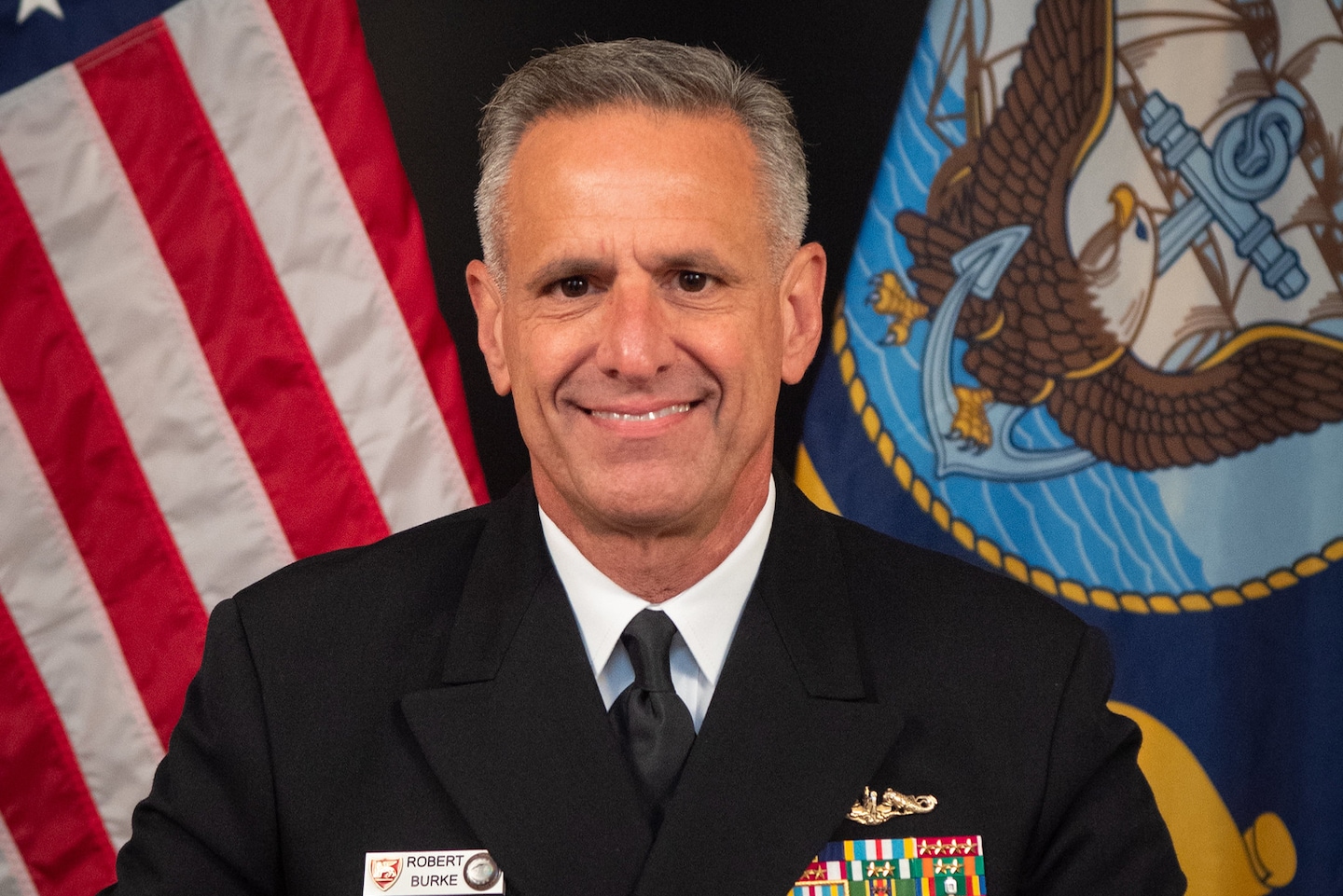
CEOs charged with top Navy admiral fight U.S. bribery allegations
- Science
- June 30, 2024
- No Comment
- 250
In their first public statements about the case, lawyers for the company and its charged co-CEOs criticized the Justice Department’s handling of the investigation, suggesting prosecutors were fixated on landing a trophy target.
“For 30 years, Next Jump Co-CEOs built an impeccable reputation for having developed some of the most well-respected leadership programs utilized by the U.S. Government, and it appears they are now unjustly caught up in a bureaucratic, politically motivated, governmental crossfire,” Messenger attorney Rocco F. D’Agostino said in a written statement.
Next Jump attorney Reed Brodsky, a former Manhattan federal prosecutor who co-chairs the litigation practice at the Gibson Dunn & Crutcher law firm, said it was “very disappointed” in how the government proceeded in the months preceding the indictment.
“We tried on multiple occasions to present evidence and witnesses to the government after one presentation, but surprisingly the government refused to hear anything we had to say, declining to meet with Next Jump’s counsel or even question Next Jump about the additional evidence we said we had in our possession,” Brodsky said.
Kim attorney William A. Burck, co-managing partner of one of Washington’s premier white-collar law firms, Quinn Emanuel, has also joined the case. A former lawyer in the George W. Bush White House, Burck has represented a roster of high-profile Republican clients including former Trump White House counsel Donald McGahn and political strategist Stephen K. Bannon in the Justice Department’s Russia investigation. He also represented Robert K. Hur, the special counsel who investigated President Biden’s possession of classified documents after he left the vice presidency; and former Virginia first lady Maureen McDonnell, whose federal corruption convictions with her husband, then-governor Bob McDonnell, were overturned on appeal.
“Charlie Kim would never put at risk — for any reason — everything he’s built and his standing in the global business community, much less for a contract that was at most inconsequential to his business,” Burck said in a statement. “To be clear, Mr. Kim vehemently denies any involvement in the alleged conspiracy or bribery scheme and has no intention of backing down. We are confident he will get a fair shake from the Court and the jury and that he will ultimately be exonerated.”
A spokeswoman for the D.C. U.S. attorney’s office and the Justice Department’s public integrity section declined to comment saying, “We cannot comment on an ongoing prosecution.”
Legal experts said Kim and Messenger’s combative defense is striking because prosecutors almost always seek to “flip” lower profile co-defendants in conspiracy cases and leverage their cooperation against top targets like Burke. The defense claims also raise the stakes for the Pentagon and Justice Department, which would be expected to have an airtight case given Burke’s senior rank and recent setbacks in public corruption cases, legal experts said.
“The Department of Justice hopefully has put its ducks in a row and has a prosecution that would withstand scrutiny, because these cases are very difficult to prove,” said Scott Amey, general counsel of the Project on Government Oversight watchdog group. “It’s very important for the Justice Department and the Defense Department to protect our contracting system, and to ensure the people we have at the senior-most levels aren’t thinking about lining their pockets or their future employer’s pockets.”
The Justice Department is still dealing with the fallout from its handling of the worst corruption scandal in Navy history, involving disgraced defense contractor Leonard “Fat Leonard” Francis, which was tarnished after defense attorneys alleged that prosecutors relied on flawed evidence and withheld information favorable to the defense. U.S. prosecutors in May moved to drop felony charges against five convicted defendants and said as many as two dozen more cases could be affected by an ongoing review of 34 prosecutions that included 29 guilty pleas.
Meanwhile, the Navy has faced criticism that junior officers were arrested and prosecuted while top brass have dodged accountability, as internal discipline for senior-most leaders is almost always handled internally. Burke has said he was introduced to Next Jump in 2016 around the time the Navy was seeking to overhaul its leadership training programs in the wake of the Fat Leonard scandal. He has said that as Chief of Naval Personnel the following year, he reached out to the company when the Navy faced another crisis over leadership and readiness breakdowns exposed by two deadly collisions in June and August 2017 involving the USS Fitzgerald and USS John McCain, in which 17 sailors were killed.
Burke’s case “is critically important to the Justice Department to rebound from the utter disaster of the Fat Leonard investigations,” said Michael R. Sherwin, a former federal prosecutor who served as acting U.S. attorney for D.C. in 2020 and 2021. Sherwin recently represented a defendant in another recent federal Navy bribery case in which prosecutors abandoned claims of a $50 million fraud.
Virtually all federal corruption cases “are built on cooperators” to get to a top target, such as Burke, Sherwin added. The fact that Kim and Messenger are fighting charges “tells me either the government made a run at them, and they refused; or prosecutors think the evidence against them is so strong — such as emails, text messages or recordings — that they don’t need them.”
According to charging papers, Burke supported a Next Jump workforce training pilot program to a small Navy component from August 2018 through July 2019 before the Navy terminated a contract with the company in November 2019. That same month, an aide to Burke directed the firm not to contact him further because of “upcoming contracting actions” and because of his recent promotion to Vice Chief of Naval Operations. Burke served about a year as the service’s No. 2-ranking officer, from June 2019 to June 2020, after his predecessor unexpectedly retired before taking over as the Navy’s top officer in August 2019.
Despite the admonition, a 16-page indictment alleges, Kim, Messenger and Burke agreed in a July 2021 meeting that he would use his position — then as one of nine four-star Navy admirals — to award a sole-source contract to Next Jump in exchange for a future job, and to influence other officers to award a larger training contract valued at or more than $100 million.
Senior government officials generally are required to notify ethics offices about the initiation of job talks and to recuse themselves from matters involving a potential future employer, but Burke misled and concealed his conflict of interest from the Navy, prosecutors charged.
Burke’s lawyer, Tim Parlatore, has said his client never accepted a job at the initial meeting and that he left the firm within months of joining it in October 2022. Parlatore questioned the logic of the government’s allegation that Next Jump offered a $500,000-a-year job to get a $355,000 award.
Kim and Messenger’s defenders inside the company agree. In documents posted in company social media accounts and internal communications, employees say Burke misled Next Jump executives about what he and the Navy were doing with the company, while telling them his actions were permitted.
Burke attorney Parlatore rejected that characterization, saying Burke “never misled anybody.” At the time Burke had serious employment conversations with Next Jump, he had authorization from the Navy, Parlatore said, adding, “Admiral Burke has done nothing wrong here, he’s been above board at all stages. There was no bribery, and we expect to go to trial and win.”
#CEOs #charged #top #Navy #admiral #fight #U.S #bribery #allegations









